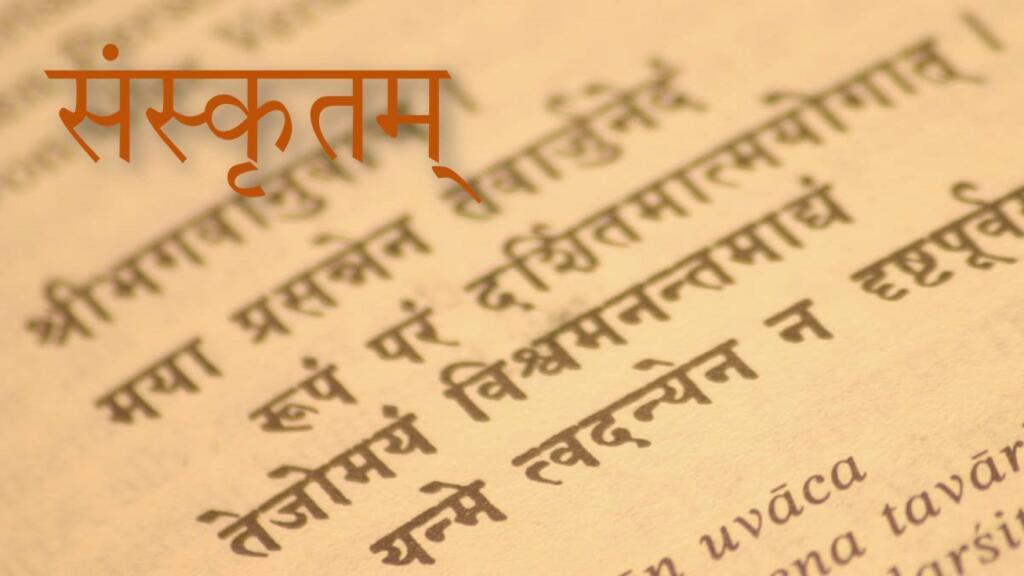The left-liberals and Marxist historians have a set game plan when they want to emasculate any Vedic custom. Sanskrit, one of the oldest languages of the world is often dubbed a language of the elites by the aforementioned lot. A concerted campaign has been launched that attempts to widen the divide by suggesting that the language was only used by the Brahmins. However, the truth cannot be far from it.
One of the propaganda left portals had this to say for the language of the Gods, “Sanskrit was used as a tool to demarcate people, rather than simply as a language – Sanskrit denoted the caste of its speaker. The language, then, can best be remembered as a marker of the caste system rather than the glory of India.”
However, evidence for Sanskrit having been a spoken language is abundant. There are hundreds of everyday words in the Vedas that do not serve any religious purpose. Similes and metaphors use everyday words. If it was not a commonly spoken language but only a strictly liturgical language, such everyday words would not exist, as they would not serve any religious function.
Moreover, after a phase during which Prakrit became the preferred language of writing and communication, Sanskrit re-emerged as the language of choice after the fall of the Mauryan empire. It could not have simply happened if the language did not have a prior hold amongst the masses. An entire civilization just doesn’t pivot to a totally different language at the flick of a switch.
BR Ambedkar wanted Sanskrit as the national language
Father of the Indian constitution, late B.R. Ambedkar strove relentlessly for the uplift of the poor and marginalised sections of society. Even he had accorded importance to the learning of ancient Indian languages such as Sanskrit and Prakrit. Ambedkar even went to great lengths to suggest that the language of the gods be made the national language of the country. Will the Marxist linguists and historians also call him a liar for batting for Sanskrit?
Understandably there is a large populace that is against Hindi being imposed as a national language but what if Sanskrit takes the centre stage? It is one of the languages that form the basic framework of a variety of Indian regional languages like Tamil, Kannada, Malayalam, and Telugu. Reportedly, all modern languages in India draw about 50 per cent from the language of the gods, with Malayalam and Kannada topping the list.
Sanskrit and its influence on other languages
As a language, Sanskrit has had a profound influence on many other languages and has resiliently borne the brunt of time. For years, it remained the primary knowledge-bearing and culture-bearing language of India.
About five to 30 million extant manuscripts – that is 100 times those in Greek and Latin combined – have been written in Sanskrit. Imagine only the priestly class writing 30 million manuscripts? Doesn’t seem plausible and yet some want to create the divide that the language was limited to the educated circles of the Vedic civilization.
Not only masses in India but also abroad influenced by Sanskrit
Sanskrit “has the largest body of literature in the world and has seen continuous production of literature in all fields of human endeavour”. Its geographical influence apart from India is seen in South Asia, Southeast Asia, Tibet, China, Korea, and Japan.
Scholars from the Romantic period (18th century) to contemporary times have paid tribute to the brilliance of Sanskrit and its contribution to the enrichment of all-around literature. Such has been the influence of the world’s oldest language.
Read More: Reviving Sanskrit – The language of the Devas
The essence of a nation’s conscience – right from an everyday conversation to abstract praise of the divine, can be felt only in that nation’s tongue. As far as India is concerned, Sanskrit not only allows us to reconnect with our past, but it throws open the entirety of India’s past literature and spirituality without the need for translations and throws open to us a prospective future filled with Sanskrit literature. Those looking to create the artificial divide should take a cursory look at the history books, albeit not the heavily distorted ones.
